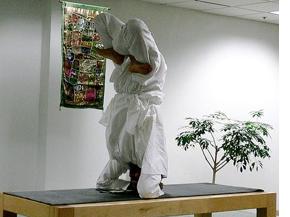
How To Stress Less For Success
“I’m so stressed out!” How often do you find yourself saying this in your mind or to family and friends? Stress, a modern term, arose from physiological studies begun in the 1930s, and is now used as we know it beginning in the 1950s with the publication of Hans Seyles’ book The Stress of Life (1956). If you Googled the word stress today, you would discover over 600 million articles about stress and over half million books about stress. Doctors say “stress” is the underlying cause of 80-95% of all health issues we suffer today.
Not that our ancestors didn’t have stress – they most certainly did (disease, infant and maternal mortality, wars, natural disasters) and what they felt was probably just as intense. They just didn’t use the term “stress” for it. Stress is clearly not unique to the modern world. But perhaps we are more aware that stress is about the choices we make around activities, events, and people we find stressful, rather than the time that we occupy in history.
Before I continue, I would like to note that there are two kinds of stress: good stress and bad stress, and bad stress can take two forms, acute or chronic. Good stress is actually what we call a “challenge,” difficult but possible, and helps us get the energy we need to get things done. Acute stress is usually a result of something outside ourselves that we cannot control, such as a car wreck or a serious computer crash; it is intense, and of short duration. In chronic stress, such as being ill with cancer, or dealing with an irascible boss, you feel that the cause of the stress never lets up.
Good stress results in LTP, or “long-term potentiation.” As you stress your brain by asking it to absorb new and unfamiliar information, what started as difficult becomes easier. Neurons go down new pathways that quickly become old and familiar pathways. Or as the neuroscientists say, “neurons that fire together, wire together.” This is why “practice makes perfect” for musicians.
But what can we do about the bad stress? We’re all familiar with the notion that it isn’t a particular situation that’s stressful, but our response to it, especially our thoughts about it. Granted, sometimes stress is an autonomic response, a sudden shock or fright, but oftentimes stress is about the mental choices we make. Unfortunately, the habitual thoughts we think in response to stress can actually exacerbate the stress we feel in our minds and bodies. For example, there’s a deadline for a project, or a set time for an appointment, and the calendar or clock says we’re clearly cutting it too close. We can:
a) Tighten our jaw and say, “It’s all so-and-so’s fault!” or,
b) Yell, hit something, and say, “I always wait to the last minute —what’s wrong with me?” or,
c) Pause, consciously relax our muscles, close our eyes for a few minutes (if not driving!) and re-frame the moment by stating, “I have all the time I need to (fill in the blank),” or,
d) Breathe, deeply and consciously, from the base of the abdomen to the top of our lungs, to slow down our spinning minds and nerves.
For each stressful situation, there are responses that soothe us or make things worse. When we are stressed or fearful, we don’t make good decisions. It is physically impossible because the brain moves into survival mode. This often creates a spiral of negativity and stress that, in the worst case, can literally kill you. You cannot think strategically about your work or your life while in a state of fear.
Natalie Goldberg, an American painter, writer, poet, and filmmaker says, “Stress is basically a disconnection from the earth, a forgetting of the breath. Stress is an ignorant state. It believes that everything is an emergency. Nothing is that important. Just lie down.” Breathing deeply and consciously can be done any time, anywhere, to reduce blood pressure and anxiety.
When we lessen our stress, even just a notch or two, things begin to swing the other direction and the stress begins to ebb. Know your pivot point where stress management needs to kick in. Slow down on purpose and put yourself back in control. You will then think more clearly—and surprise, you will also become more productive instead of racing around the hamster wheel one more time.
Hillary Hutchinson, M.A., M.Ed., is a certified career coach who helps people manage major life and work transitions. She has a specialty in academia. Contact Hillary.
Tags: success








Pingback: 3 simple ways to stress less and stress better - Transitioning Your Life